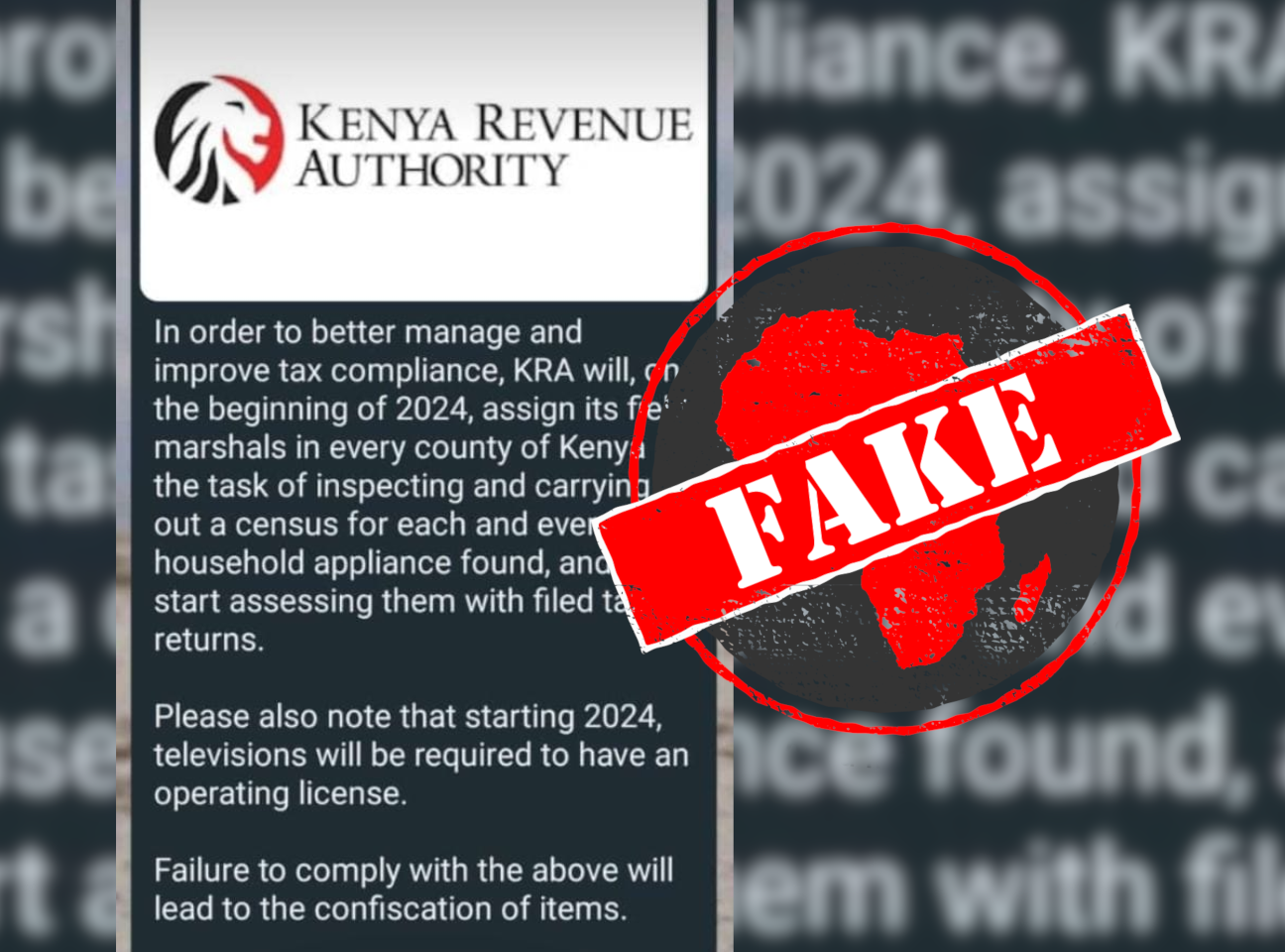IN SHORT: A screenshot of a WhatsApp message is circulating online claiming that Kenya's tax agency is deploying field marshals to inspect and record details of household appliances. But it is fake.
A screenshot of what seems to be a WhatsApp message with communication allegedly from Kenya’s tax agency is going viral on social media.
“KRA will on the beginning of 2024, assign it’s field marshals in each county of Kenya the task of inspecting and carrying out a census for each and every house appliance found and will start assessing them with filed tax returns,” the message reads.
The screenshot circulating on Facebook has the logo of the Kenya Revenue Authority (KRA), the country’s tax agency, at the top.
One user commented: “It could be true.”
In September 2023, the KRA announced that they would deploy revenue assistants to Kenyans doorsteps to enforce tax compliance. However, this exercise was aimed at facilitating the online registration of businesses and made no mention of keeping records of household appliances.
The image has been shared here, here, here, here, here, here, here, here, here, here, here and here.
But is Kenya’s tax agency really deploying field marshals to inspect and record household appliances? We checked.

‘Don’t be a victim of misinformation’
The circulating screenshot contains errors such as “on the beginning of 2024” instead of “in the beginning of 2024”, and also says “it’s field agents” instead of “its field agents”. It is unlikely that the KRA would publish an official message that has spelling and grammatical errors.
A second red flag is that the information wasn’t covered by any credible media houses or government agencies.
On 4 January 2024, the KRA posted the viral screenshot with the word “fake” written across it in red.
“Fake news!! Don't be a victim of misinformation!,” reads the post on their official X (formerly Twitter) account.
The circulating screenshot is fake and should be ignored.
Republish our content for free
For publishers: what to do if your post is rated false
A fact-checker has rated your Facebook or Instagram post as “false”, “altered”, “partly false” or “missing context”. This could have serious consequences. What do you do?
Click on our guide for the steps you should follow.
Publishers guideAfrica Check teams up with Facebook
Africa Check is a partner in Meta's third-party fact-checking programme to help stop the spread of false information on social media.
The content we rate as “false” will be downgraded on Facebook and Instagram. This means fewer people will see it.
You can also help identify false information on Facebook. This guide explains how.


Add new comment